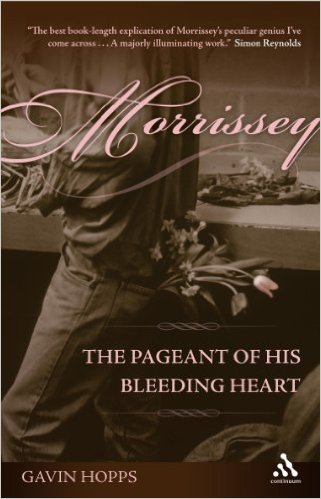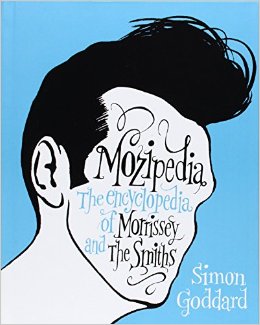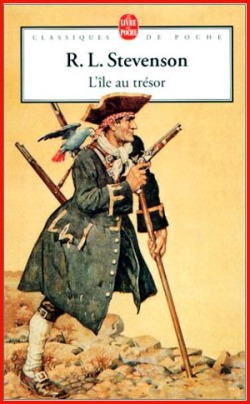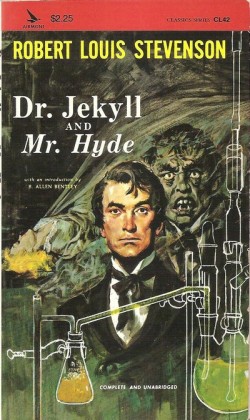Wilde about Algy: Oscar, Algernon, and Gilbert Too
If someone who gets the blame for what someone else did is a scapegoat, someone who gets the credit for what someone else said has to be a scapequote. And the greatest scapequote of them all has to be Oscar Wilde (1854-1900). It’s not surprising, though, because Wilde was a very clever and sharp-witted man. For example, you may well read that the painter James McNeill Whistler (1834-1903), also reknowned for his wit, once jealously remarked of one of Wilde’s bon mots: “I wish I had said that.” To which Wilde replied, “You will, James, you will.”1
Pretty sharp, wasn’t it? The problem is that it was really the other way around: Wilde was jealous of something Whistler had said, and it was Whistler’s put-down. See what I mean about Wilde being the greatest scapequote of them all? And it isn’t just other people’s repartee Wilde gets the credit for:
Behind the fun of Gilbert’s lines stands the quite serious business of satire. Generally his targets are common human attitudes – hypocrisy, class distinction, and so forth; but with Patience he descended from the general to the particular and burlesqued the aesthetic movement of the time, typified by Oscar Wilde, Walter Pater, J.M. Whistler, and their self-professed disciples.2
He didn’t, you know. Gilbert is W.S. Gilbert (1836-1911), and Patience (1881) is one of the Gilbert and Sullivan operas, but Gilbert did not write Patience about Oscar Wilde and the school of poetry Wilde typified: he wrote it about Algernon Charles Swinburne (1837-1903) and the school of poetry Swinburne typified. And I can’t believe anyone at the time thought otherwise: Swinburne was far more famous than Wilde and, as we shall see, is unmistakably caricatured in the hero of the opera. It’s Wilde’s fame since then that has caused history to be re-written – to the point, I was amused to discover, that one biographical dictionary credits him with even more than inspiring Patience :
WILDE, Oscar … (1854-1900), Irish playwright, novelist, essayist, poet and wit, born in Dublin … In 1881 his first volume of poetry was published, Patience, and the next year he embarked on a lecture tour of the USA …3
Wilde’s first volume of poetry was in fact called Poems, and is in fact a good piece of evidence that Patience wasn’t written about him, because it was published in July 1881 and Patience was first performed in April. Is it likely that the hero of Patience, who is a poet, was based on someone who hadn’t even published his first volume of poetry? Not very, and it becomes even less likely when we look first at the name of the hero, which is Reginald Bunthorne, and second at his precise classification, which is “Fleshly Poet”. Reginald Bunthorne is clearly meant to suggest Algernon Swinburne, and “Fleshly Poet” is clearly meant to be a reference to
Fleshly School of Poetry, The, the title of an article in the Contemporary Review (Oct. 1871), in which Robert Buchanan[,] under the pseudonym of “Thomas Maitland”, attacked the Pre-Raphaelites[,] especially D.G. Rossetti. This attack was the prelude to a long and bitter controversy.4
Conducted in part by Algernon Swinburne, who was closely associated with the Pre-Raphaelites and whose verse was one of the chief targets in Buchanan’s article, just as it is one of the chief targets in Gilbert’s libretto for Patience :
“OH, HOLLOW! HOLLOW! HOLLOW!”
What time the poet hath hymned
The writhing maid, lithe-limbed,
Quivering on amaranthine asphodel,
How can he paint her woes?,
Knowing, as well he knows,
That all can be set right with calomel?When from the poet’s plinth
The amorous colocynth
Yearns for the aloe, faint with rapturous thrills,
How can he hymn their throes
Knowing, as well he knows,
That they are only uncompounded pills?Is it, and can it be,
Nature hath this decree,
Nothing poetic in the world shall dwell?
Or that in all her works,
Something poetic lurks,
Even in colocynth and calomel,
I cannot tell.[Exit BUNTHORNE.
ANG[ELA]. How purely fragrant!
SAPH[IR]. How earnestly precious!
PA[TIENCE]. Well, it seems to me to be nonsense.
The vocabulary and phrasing are characteristically Swinburnian: limbs are lithe in “Dolores”, for example:
Thou shalt blind his bright eyes though he wrestle,
Thou shalt chain his lithe limbs though he strive;
In his lips all thy serpents shall nestle,
In his hands all thy cruelties thrive. [lns. 201-4]
And Patience’s verdict on Bunthorne – “It seems to me to be nonsense” – echoes the verdict of many on Swinburne: for Tennyson he was “a reed through which all things blow into music”5 and for A.E. Housman a kind of poetic “sausage-machine”.6
But then Housman did admire Swinburne greatly in other ways, and Swinburne himself was well aware of his own prolixity and tendency to sacrifice sense to sound:
From the depth of the dreamy decline of the dawn through a notable nimbus of nebulous noonshine,
Pallid and pink as the palm of the flag-flower that flickers with fear of the flies as they float,
Are they looks of our lovers that lustrously lean from a marvel of mystic miraculous moonshine,
These that we feel in the blood of our blushes that thicken and threaten with throbs through the throat?
These are the first lines of “Nephelidia”, a self-parody published in The Heptalogia in 1880. Perhaps Swinburne heard that Gilbert was at work on a Swinburlesque, and decided to get in with his own first; in either case, he was already familiar with parodies on his verse. In 1866 he had published the first series of his Poems & Ballads, and had been condemned in very strong terms for the blasphemies and obscenities of poems like “Dolores”:
Cold eyelids that hide like a jewel
Hard eyes that grow soft for an hour;
The heavy white limbs. and the cruel
Red mouth like a venomous flower;
When these have gone by with their glories,
What shall rest of thee then, what remain,
O mystic and sombre Dolores,
Our Lady of Pain? [lns. 1-8]O lips full of lust and of laughter,
Curled snakes that are fed from my breast,
Bite hard, lest remembrance come after
And press with new lips where you pressed!For my heart too springs up at the pressure,
Mine eyelids too moisten and burn;
Ah! feed me and fill me with pleasure,
Ere pain come in turn. [lns. 25-32]By the ravenous teeth that have smitten
Through the kisses that blossom and bud,
By the lips intertwisted and bitten
Till the foam has a savour of blood,By the pulse as it rises and falters,
By the hands as they slacken and strain,
I adjure thee, respond from thine altars,
Our Lady of Pain. [lns. 113-120]
But by far the cleverest and most telling critique of Poems & Ballads, in general, and “Dolores”, in particular, was written by a Cambridge don called Arthur Clement Hilton (1851-77):
OCTOPUS
By Algernon Charles Sin-Burn
(Written at the Crystal Palace Aquarium)
Strange beauty, eight-limbed and eight-handed,
Whence camest to dazzle our eyes?
With thy bosom bespangled and banded
With the hues of the seas and the skies;
Is thy home European or Asian,
O mystical monster marine?
Part molluscous and partly crustacean,
Betwixt and between.Wast thou born to the sound of sea-trumpets?
Hast thou eaten and drunk to excess
Of the sponges – thy muffins and crumpets,
Of the seaweeds – thy mustard and cress?
Wast thou nurtured in caverns of coral,
Remote from reproof or restraint?
Art thou innocent, art thou immoral,
Sinburnian or Saint?Lithe limbs, curling free, as a creeper
That creeps in a desolate place,
To enrol and envelop the sleeper
In a silent and stealthy embrace,
Cruel beak craning forward to bite us,
Our juices to drain and to drink,
Or to whelm us in waves of Cocytus,
Indelible ink!Ah breast, that ’twere rapture to writhe on!
O arms ’twere delicious to feel
Clinging close with the crush of the Python,
When she maketh her murderous meal!
In thy eight-fold embraces enfolden,
Let our empty existence escape;
Give us death that is glorious and golden,
Crushed all out of shape!Ah! thy red lips, lascivious and luscious,
With death in their amorous kiss!
Cling round us, and clasp us, and crush us,
With bitings of agonized bliss;
We are sick of the poison of pleasure,
Dispense us the potion of pain;
Ope thy mouth to its uttermost measure
And bite us again!7
A good parody is worth a thousand moral condemnations – or a thousand literary criticisms. The best critical essay on Swinburne I have ever read is A.E. Housman’s “Swinburne”, whose “sausage-machine” verdict was quoted above, but even if the essay wasn’t rather sour and disdainful in tone it would still take a long time to read – particularly by comparison with these lines from G.K. Chesterton:
He was defeated in several battles by the celebrated Arnhold brothers – the three guerilla patriots to whom Swinburne wrote a poem, you remember:
‘Wolves with the hair of the ermine,
Crows that are crowned and kings–
These things be many as vermin,Yet three shall abide these things.’8
And yes, anyone familiar with Swinburne’s political poetry would remember. Not those exact words, of course, because Chesterton has made them up, but the verbal dexterity and the passionate but naive anti-monarchism.
Chesterton wrote at least one more parody of Swinburne, and it’s another example both of how effective parodies can be as a method of literary criticism and of how enjoyable they are. A parody is a work of art in its own right, and instead of sniping at its target from the groves of Academe it’s fighting on the same ground and with the same weapons. Housman’s essay on Swinburne is very good, but would much better have been accompanied or even replaced by a parody of him – which Housman, unlike most literary critics, would have been well capable of supplying. The asperities of Housman’s judgments in prose would have been softened in a parody, conveyed by example rather than explication, and Swinburne addicts like me would have had another purified extract to inject. In some ways Hilton’s “Octopus” has the same advantage over “Dolores” itself as Chesterton’s lines have over Housman’s essay: it distils and concentrates an essence, and allows one to savour Swinburne’s pungencies and spices in twenty couplets and a minute rather than, as in the original, two-hundred-and-twenty and half-an-hour.
Mutatis mutandis, the same is true of Chesterton’s second Swinburne parody in “Old King Cole – Variants of an Air”:
In the time of old sin without sadness
And golden with wastage of gold
Like the gods that grow old in their gladness
Was the king that was glad, growing old;
And with sound of loud lyres from his palace
The voice of his oracles spoke,
And the lips that were red from his chalice
Were splendid with smoke.
When the weed was as flame for a token
And the wine was as blood for a sign;
And upheld in his hands and unbroken
The fountains of fire and of wine.
And a song without speech, without singer,
Stung the soul of a thousand in three
As the flesh of the earth has to sting her,
The soul of the sea.
And, with increasing silliness but also increasing affection, Mortimer Collins’ “Salad”:
O cool in the summer is salad,
And warm in the winter is love;
And a poet shall sing you a ballad
Delicious thereon and thereof.
A singer am I, if no sinner,
My muse has a marvellous wing,
And I willingly worship at dinner
The sirens of Spring.
Take endive… like love it is bitter;
Take beet… for like love it is red;
Crisp leaf of the lettuce shall glitter,
And cress from the rivulet’s bed;
Anchovies foam-born, like the Lady
Whose beauty has maddened this bard;
And olives, from groves that are shady;
And eggs – boil ’em hard.
And Barry Pain’s survey of “The Poets at Tea”:
3. Swinburne, who let it get cold
As the sin that was sweet in the sinning
Is foul in the ending thereof,
As the heat of the summer’s beginning
Is past in the winter of love:
O purity, painful and pleading!
O coldness, ineffably gray!
Oh, hear us, our handmaiden unheeding,
And take it away!
And, finally, Richard le Gallienne’s “A Melton Mowbray Pork Pie”:
Strange pie that is almost a passion,
O passion immoral for pie!
Unknown are the ways that they fashion,
Unknown and unseen of the eye.
The pie that is marbled and mottled,
The pie that digests with a sigh:
For all is not Bass that is bottled,
And all is not pork that is pie.9
APPENDIX 1: How did Wilde become so strongly associated with Patience?
Nihil novi sub sole, inquit Ecclesiastes. Nothing new under the sun, saith the preacher. I don’t actually believe that, not completely, anyway, but it’s certainly true that many things are not as new as we think they are. Marketing campaigns and advertising hype, for example. Very twentieth-century, aren’t they?
Well, yes. But they’re also very nineteenth-century. A name nearly as closely connected with Gilbert and Sullivan as they are with each other is D’Oyly Carte. As in the impresario Richard D’Oyly Carte (1844-1901) and the D’Oyly Carte Company he founded to produce Gilbert and Sullivan’s operas. And a company it was in both senses: the operas were produced to make money, and if you want to make money you also have to avoid losing it. Pirating of the operas in America lost D’Oyly Carte money, and he was always anxious about their reception there.
But the problem he felt Patience might have was not with piracy but simply with popularity. The opera satirized English institutions that the Americans would be unfamiliar with, and his apprehensions may have been increased by a verdict passed after the first British performance by the “critic of the Referee”, who
noticed that some of Gilbert’s shots went over the heads of the audience, perhaps because the fusillade was too rapid: this opera is packed with subtleties of humour – the very title Patience, or Bunthorne’s Bride is a joke, for Bunthorne is the only one who is not married off at the end.10
That last point is yet another piece of evidence for the thesis of the article: Swinburne was aged 44 in 1881 and still, remarkably, unmarried; but Swinburne could hardly be expected to help publicize an opera making fun of him and his art. An up-and-coming young poet with a hunger – craving, even – for fame might be expected to, however. Particularly one who would later write that “There is only one thing worse than being talked about, and that is not being talked about”.11
D’Oyly Carte worked also as an agent, and there was just such a young poet on his books: Oscar Fingal O’Flahertie Wills Wilde, who was aged 27 in 1881 and still, not very remarkably, unmarried. D’Oyle Carte arranged for Wilde to undertake a lecture tour of America with a profitably comprehensible Patience following in his wake: audiences who had seen Wilde posing and posturing on stage with a lily in his hand could now understand, and laugh at, Bunthorne doing the same.
In short, and in D’Oyle Carte’s own words of denial, Wilde was sent out as “a sandwich[-board] man for Patience”.12 To the Americans, familiar with Swinburne’s poetry but not with his person, Bunthorne became Wilde, and the misidentification – helped, perhaps, by changes in the opera – travelled back across the Atlantic to last to the present day. And it is likely to last, perhaps, for good: modern audiences are familiar neither with Swinburne’s poetry nor with his person, but Wilde, in Swinburne’s shadow at the beginning of his career, now looms larger than ever.
And so it is that the anomalies of Wilde-as-Bunthorne go ever more unnoticed: Swinburne’s surname, like Bunthorne’s, is disyllablic and a trochee:13 Wilde’s is neither; in real life Swinburne was, like Bunthorne on stage, short and bearded: Wilde was tall and clean-shaven; Swinburne, like Bunthorne, was an English aristocrat: Wilde was Irish and not particularly aristocratic; Swinburne was Bunthorne: Wilde was not.
APPENDIX 2: Lewis Carroll’s parody of “Dolores” in Sylvie & Bruno
‘Why, that are one of the Professor’s songs!’ cried Bruno. ‘I likes the little man; and I likes the way they spinned him–like a teetle-totle-tum.’ And he turned a loving look on the gentle old man who was sitting at the other side of his leaf-bed, and who instantly began to sing, accompanying himself on his Outlandish guitar, while the snail, on which he sat, waved its horns in time to the music.
In stature the Manlet was dwarfish–
No burly big Blunderbore he:
And he wearily gazed on the crawfish
His Wifelet had dressed for his tea.
‘Now reach me, sweet Atom, my gunlet,
And hurl the old shoelet for luck:
Let me hie to the bank of the runlet,
And shoot thee a Duck!’
She has reached him his minikin gunlet:
She has hurled the old shoelet for luck:
She is busily baking a bunlet,
To welcome him home with his Duck.
On he speeds, never wasting a wordlet,
Though thoughtlets cling, closely as wax,
To the spot where the beautiful birdlet
So quietly quacks.
Where the Lobsterlet lurks, and the Crablet
So slowly and sleepily crawls:
Where the Dolphin’s at home, and the Dablet
Pays long ceremonious calls:
Where the Grublet is sought by the Froglet:
Where the Frog is pursued by the Duck:
Where the Ducklet is chased by the Doglet–
So runs the world’s luck!
He has loaded with bullet and powder:
His footfall is noiseless as air:
But the Voices grow louder and louder,
And bellow, and bluster, and blare.
They bristle before him and after,
They flutter above and below,
Shrill shriekings of lubberly laughter,
Weird wailings of woe!
They echo without him, within him:
They thrill through his whiskers and beard:
Like a teetotum seeming to spin him,
With sneers never hitherto sneered.
‘Avengement,’ they cry, ‘on our Foelet!
Let the Manikin weep for our wrongs!
Let us drench him, from toplet to toelet,
With Nursery-Songs!
‘He shall muse upon “Hey! Diddle! Diddle!”
On the Cow that surmounted the Moon:
He shall rave of the Cat and the Fiddle,
And the Dish that eloped with the Spoon:
And his soul shall be sad for the Spider,
When Miss Muffet was sipping her whey,
That so tenderly sat down beside her,
And scared her away!
‘The music of Midsummer-madness
Shall sting him with many a bite,
Till, in rapture of rollicking sadness,
He shall groan with a gloomy delight:
He shall swathe him, like mists of the morning,
In platitudes luscious and limp,
Such as deck, with a deathless adorning,
The Song of the Shrimp!
‘When the Ducklet’s dark doom is decided,
We will trundle him home in a trice:
And the banquet, so plainly provided,
Shall round into rose-buds and rice:
In a blaze of pragmatic invention
He shall wrestle with Fate, and shall reign:
But he has not a friend fit to mention,
So hit him again!’
He has shot it, the delicate darling!
And the Voices have ceased from their strife:
Not a whisper of sneering or snarling,
As he carries it home to his wife:
Then, cheerily champing the bunlet
His spouse was so skilful to bake,
He hies him once more to the runlet,
To fetch her the Drake!
NOTES
[1]I did read this once, only the other party wasn’t described as being Whistler.
[2]Michael Hardwick, The Osprey Guide to Gilbert and Sullivan, Osprey, Reading, 1972, Patience, pg. 91
[3]Chambers Biographical Dictionary, ed. Magnus Magnusson, W & R Chambers, Edinburgh, 1990.
[4]The Concise Oxford Dictionary of English Literature, ed. John Mulgan, Oxford, 1957.
[5]Algernon Charles Swinburne: Selected Poems, ed. L.M. Findlay, Carcanet, Manchester, 1982, introduction, pg. 2
[6]“Swinburne”, in A.E. Housman: Collected Poems & Selected Prose, ed. Christopher Ricks.
[7]Unauthorized Versions: Poems & their Parodies, ed. Kenneth Baker.
[8]From the story “The Fairy Tale of Father Brown”, in The Wisdom of Father Brown, pg. 306 of the 1983 The Penguin Complete Father Brown.
[9]These are taken from Imitations of Immortality: A Book of Literary Parodies, E.O. Parrott.
[10]Leslie Bailey, The Gilbert and Sullivan Book, Spring Books, London, 1966, “Patience: A Caricature of the Follies of the Age”, pp. 210-1
[11]“The Picture of Dorian Gray”, ch. 1
[12]Letter from D’Oyly Carte to Helen Lenoir, December, 1881, quoted in The Gilbert and Sullivan Book, pg. 212
[13]Other phonetic similarities between Swinburne and Bunthorne are too obvious to mention.
© Simon Whitechapel 2004



